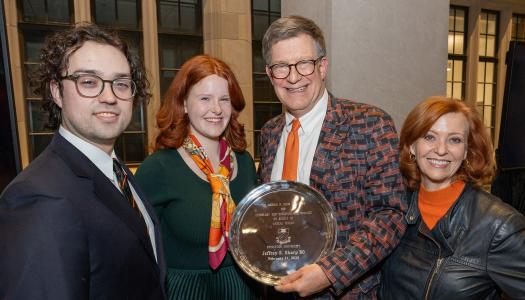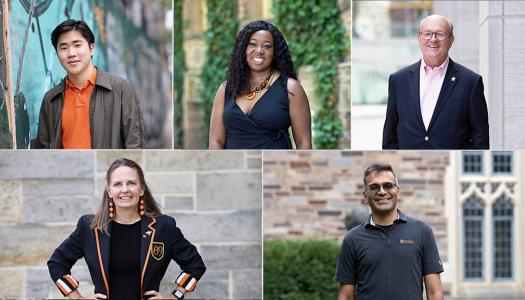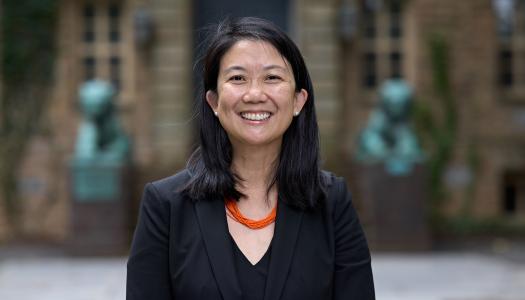Annual Giving campaign: Every gift has a story
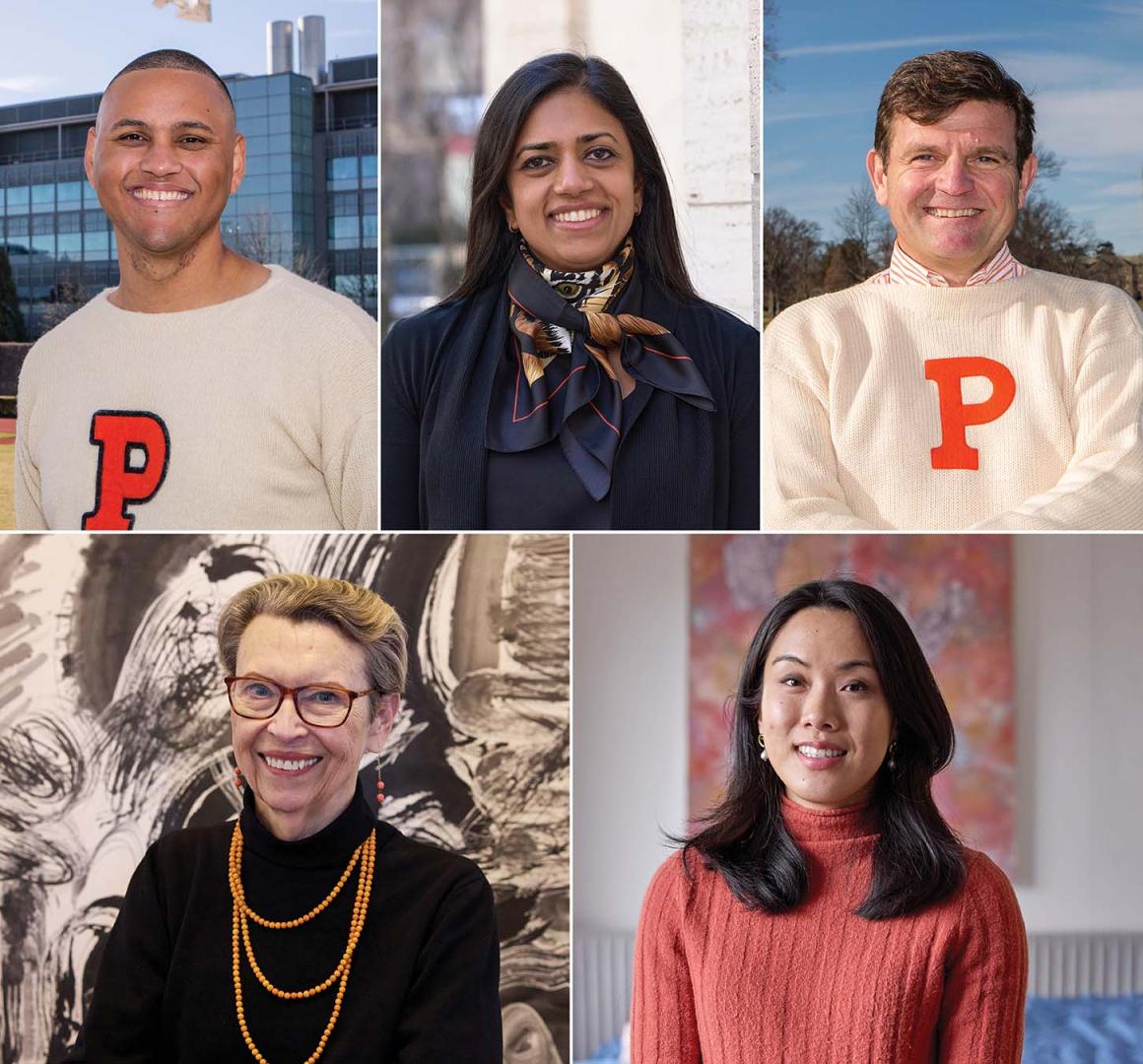
Photos by Steven Freeman and Andrew Kane
A tradition that began in 1940, Annual Giving is how Princeton alumni, parents and friends come together to make the University’s transformative educational experience possible for the next generation of Tigers. Annual Giving’s funds have a lasting impact on all aspects of student life. They enable the independent research efforts of undergraduates and are used to recruit and retain top-in-field faculty and researchers. Through the new Learning and Education through Service (LENS) program, they help provide every student with the opportunity for a funded summer service internship. Unrestricted Annual Giving dollars are also a critical factor in Princeton’s groundbreaking no-loan financial aid program, which helps the University attract talented students from all backgrounds by fully meeting students’ financial needs with grants that do not need to be repaid.
The reasons alumni support Annual Giving are as diverse and unique as each person’s Princeton story. But the common goal of giving unites and strengthens the Tiger community across all generations.
As part of the “I Give Because” campaign, five alumni share their reasons for supporting Annual Giving, a tradition that helps provide the margin of excellence that makes a Princeton education second to none — and that keeps the Princeton community moving forward together.
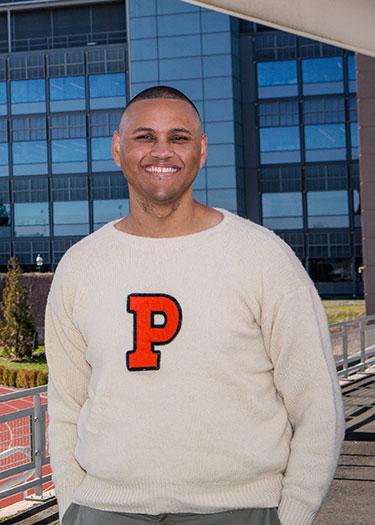
“Princeton offers students so much more than at any point previously. I want to help Princeton keep making things better for everyone.”
Mitchel Charles ’18 is grateful he arrived at Princeton as a member of the track and field team: “It’s fantastic to come into college and immediately have 60 folks that’ll have your back.” Charles gives back in appreciation “for the good things in my life that stemmed from being at Princeton,” including meeting his wife and having career opportunities: “It feels right that I contribute to that experience continuing for others.” He participates in Annual Giving because it supports programs that allow students to follow their academic passions and pursue transformative experiences: “The University is constantly making improvements, and so much of it comes from the generosity of alumni.”
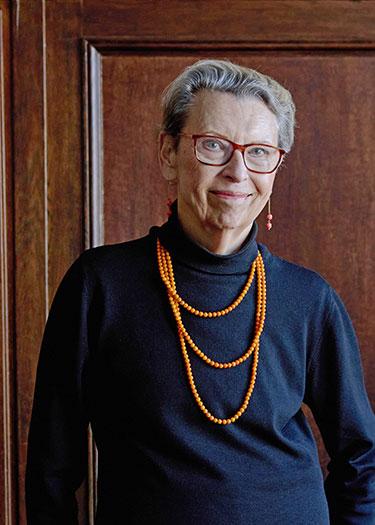
“I’m especially grateful to my fellow graduate students who have become lifelong friends and colleagues — from whom I continue to learn.”
Through Annual Giving, Freda Murck *95, a scholar of Chinese visual culture, honors the connections she made at Princeton. “The graduate program in Asian art expanded my view of how Chinese art could be studied,” she said. She credits Wen Fong, professor of art and archaeology, for opening up opportunities for her, but it was her Graduate School cohort’s studies of historical context that were especially illuminating, and she’s still learning with them. “Since the pandemic, several other women from Princeton and I have had regular Zoom sessions,” she said. “Sometimes someone has a research question, some painting they’re trying to sort out. We share information and opinions on artwork. It’s been great fun.”
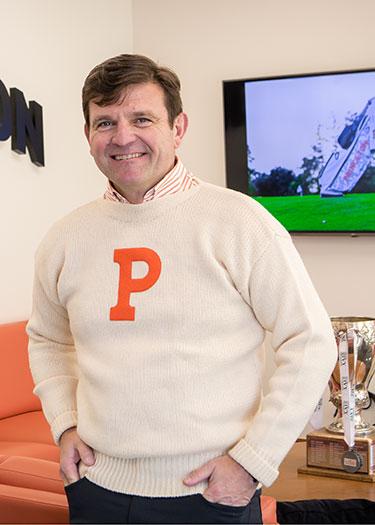
“Annual Giving lets me return the favor that so many alums bestowed upon me — not only friendship but advice and support.”
“From day one, Princetonians literally put their arms around me,” said Jason Mraz ’89, who met his wife, his investment-management business partner and his best friends as an undergrad. Twice the Ivy League’s golf champion and a member of teams that won Ivy championships in 1986, 1987 and 1989, Mraz is grateful for alums who played a meaningful role in his Princeton experience. Today, Mraz pays it forward as an Annual Giving class leader and as president of the Friends of Princeton Golf. “I know that as soon as I could help the next generations think about Princeton as a community they’re joining for life, I would do it.”
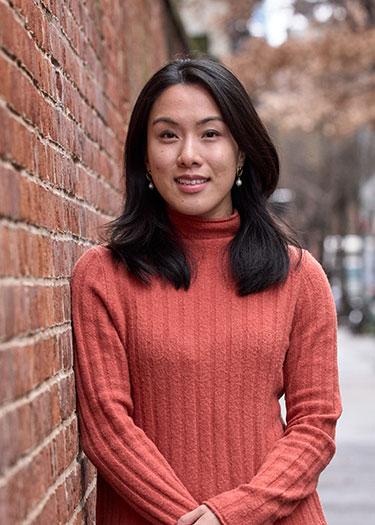
“Princeton is educating future generations who will be leaders in civic and social services organizations.”
Participation in the Princeton Internships in Civic Service (PICS) was life-changing for Shirley Wu ’15, particularly her experience in the strategy department of the New York Public Library, where she developed a passion for civic service that led to her career in strategic management. Now Wu gives back, in part, to support programs like the University’s Learning and Education through Service (LENS) program, which offers all undergraduates the opportunity to have a funded summer service internship. “The University is bringing a focus on civic service to the forefront of the student experience,” said Wu, who is a dedicated Annual Giving leader. “For many, it’s a lifeline to have these opportunities without financial stress.”
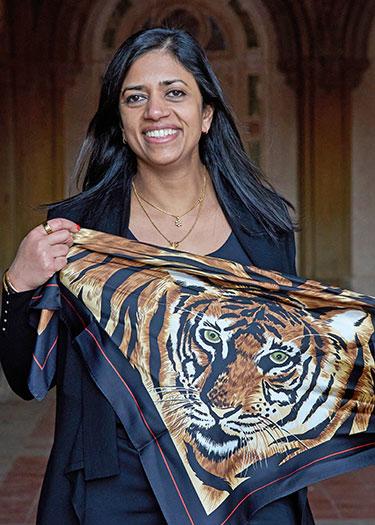
“Giving means growing the power of the University to effect change.”
For Vasanta Pundarika ’06, feelings of nostalgia and elation at graduation compelled her to give back. “All my friendships were really strong then,” she said, noting that while those powerful bonds continue to be important to her, her perspective on giving has shifted toward supporting the University’s ability to impact society. “The Princeton name carries so much gravitas,” said Pundarika, who works in healthcare and finance and serves as a class agent for Annual Giving. “Giving keeps you engaged with the University and allows it to do great things. For example, did the no-loan financial aid policy happen overnight? No, it happened because of years of alumni giving back.”
Unrestricted gifts to Annual Giving go directly into the University’s operating budget for the benefit of Princeton’s students, faculty and programs. These flexible funds from undergraduate and graduate alumni, parents and friends allow the University to seize new opportunities, respond to unexpected challenges and support a financial aid program that makes a Princeton education possible for all admitted students. The 2023-24 Annual Giving campaign concludes June 30, 2024.
